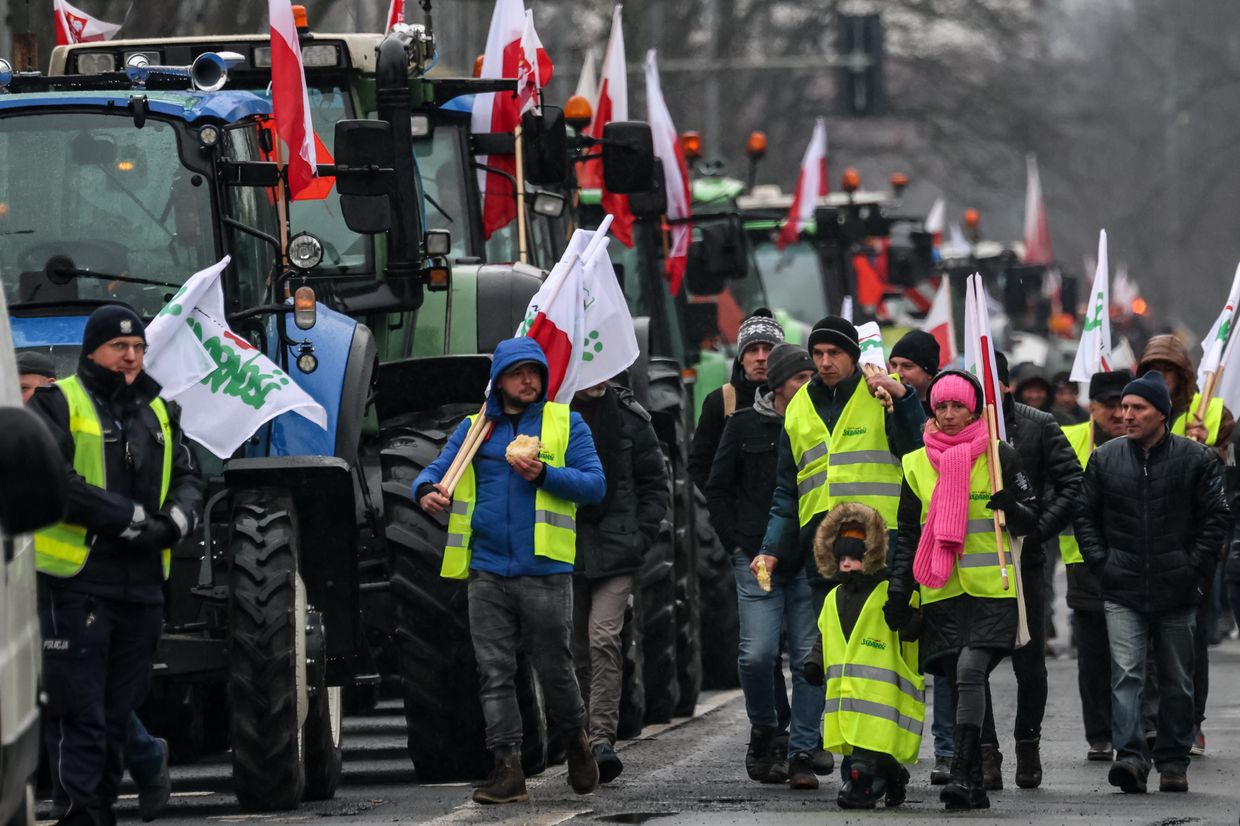Ukrainian carriers to hold protests at Poland border

Ukrainian carriers plan to launch protests on Feb. 15 at the Dorohusk-Yahodyn border crossing with Poland in response to ongoing blockade by Polish farmers, Suspilne reported on Feb. 14.
Protesting Ukrainian agricultural imports, Polish farmers have blocked five crossings with Ukraine. They plan to expand the blockade along the entire Polish-Ukrainian border starting Feb. 20.
Ukrainian carriers will start their counter-protest at 9 a.m. local time, said Vitalii Kotsenko, the head of the Carriers of the Western Region association, in a comment for Suspilne. The action is currently planned to last for a month, but its duration will depend on the situation on the Polish side.
Kotsenko said the protesters plan not to let in Polish truckers who travel to Ukraine by bypassing the main line. The organizers of the protest will also ask the Ukrainian government to ensure the safety of Ukrainian truckers and their cargo.
Footage appeared online on Feb. 11 showing Polish farmers spilling grain from Ukrainian trucks on the road. Kyiv denounced the incident, and Polish Agriculture Minister Czeslaw Siekierski issued an apology.
The passage of regular buses will not be blocked, Kotsenko added.

Polish farmers launched their protests in response to imports of agricultural goods from Ukraine, which Polish agricultural groups claim reinforces unfair competition with their businesses.
Warsaw has banned the import of grain and several other products from Ukraine in 2023, but other items, such as sugar or poultry, continue to raise worries among Polish farmers. Poland allows the transit of Ukrainian agricultural products through its territory to third-party countries.
The Solidarity trade union announced on Feb. 1 that they would block border crossings with Ukraine between Feb. 9 and March 10 because of the supposed "passivity of the Polish authorities" and of the EU in solving the import issue.
Farmers' protests also erupted in other EU countries, such as Czechia, Hungary, Slovakia, and Bulgaria, opposing not only Ukrainian imports but also the EU's Green Deal, which includes a plan to halve pesticide use, lower fertilizer use, and drastically reduce greenhouse gas emissions by 2030.
Polish carriers and farmers have previously blocked four crossings with Ukraine between November 2023 and January.
Ukraine is one of the world's largest agricultural producers and plays a critical role in exporting grain globally. Russia's full-scale invasion has drastically limited supply chain capabilities and threatened worldwide food exports.














